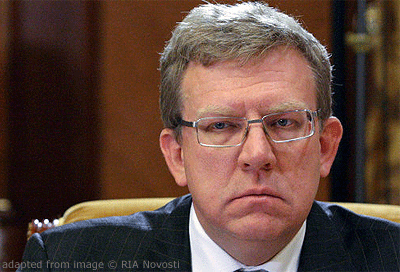Kudrin slates Russia's risky economic policy

file photo
MOSCOW, October 18 (RIA Novosti) - A complex mixture of internal political motivations and favorable, but volatile prices for the country's key export, oil, have prompted the Russian government to pursue a risky economic policy, former Finance Minister Alexei Kudrin said in an article he contributed to Kommersant business daily on Tuesday.
"(The Russian government) has all the instruments to change this course, but it is necessary to determine priorities. But there is not much time for this," Kudrin warned.
The government wants to increase budget spending by raising teachers' wages and pensions and modernizing the military, which is estimated will consume up to 20 trillion rubles in the next decade alone .
Kudrin said meeting all the goals would produce a budget deficit, while Russia, as a G20 group member, had vowed to cut its deficit by half by 2013.
He also said that although oil prices had recently been at historic record levels, it was very volatile, while Russia's surplus revenues were spent, with nothing left to replenish the country's safety cushion.
If oil prices fall to $60 per barrel, the budget deficit will amount to 5.5 percent of gross domestic product and the rest of the country's oil wealth Reserve Fund would be depleted within a year.
Kudrin said there were several options to cut the budget deficit — to cut spending, raise taxes or start up the printing press, with the last two options raising the prospect of setting back the business climate needed for economic modernization by from five to seven years.
To balance the budget, Kudrin recommended ensuring a balanced budget with oil prices at $90 a barrel in 2015 and setting rules for spending surplus oil revenues, which seriously affect inflation, the exchange rate and the country's reserves.
The government also has to revise its military spending and decide on a 2012 social strategy to invest in growth programs, he said. Finally, Kudrin urged spending cuts without tax increases to reduce pressure on GDP.
Kudrin said that Russia needed to create a new economic model, based not on demand spurred by oil revenues, but on private investment growth, accompanied by low inflation and a competitive credit rate.
Russia, Government, Politics - Russia, Economy - Russian News - Russia - Johnson's Russia List

